PAUL WILLIAMS
SONGTALK INTERVIEW - SPRING 1992
"THE HIGH FLYING TIMES OF
PAUL WILLIAMS"
BY PAUL ZOLLO
Last 26th September 1998
(When you click on the underlined red/green below you will be taken to a page with more detailed information. If you click on the song titles mentioned, you will be taken to a list of Paul Williams' albums/singles/TV shows where that song appears. When you click on the images of the Paul Williams' albums, you will be taken to the track listing, and other information on that album)
The Introduction
Last Updated 26th September 1998
The Questions And Answers
Last Updated 26th September 1998
THE INTRODUCTION
Last Updated 26th September 1998
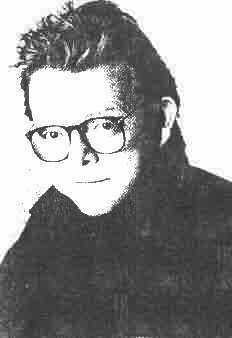
Paul Williams first job, as he happily recalls, was working as a sport parachutist in air circuses. "It was a very brief period of my life, but it has that nice corny ring to it. There I was, high over Albuquerque on the wing of a biplane, barnstorming."
He's a world-famous songwriter who first came to Hollywood not to write songs but to act in movies. "But I looked like a kid with a hangover," he recalls, "so it wasn't easy to cast me."
Unable to land any acting roles and finding an abundance of time on his hands, Paul Williams turned to songwriting. "I didn't have any money," he said recently over breakfast in a bustling, noisy Hollywood eatery, "and I couldn't get any work as an actor. So I started writing songs for my own amusement. And once I started writing, that's all I did. I was constantly writing. When I got an office at A&M, which was a few years later, I was there around the clock. I loved it."
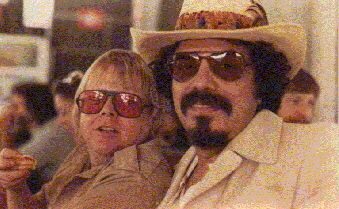
Recognising Paul's intense drive and inherent talents as a lyricist, the publisher Chuck Kaye teamed up with the composer Roger Nichols, a collaboration that started slowly but lasted for many years and produced countless hits, including
'We've Only Just Begun' (click here for the lyrics of this song), 'An Old Fashioned Love Song' (click here for the lyrics of this song) and 'Rainy Days And Mondays' (click here for the lyrics of this song)
It was Nichols from whom Paul learned the basic of the song crafting: "For about four years, Roger Nichols was like my music school. He was a trained musician, and I learned a lot of the basics about how to put a song together from Roger Nichols and from Chuck Kaye."
For the length of a college career, exactly four years, the team of Williams and Nichols churned out songs and never had any hits. And though they would work solidly for hours, when the day was done and Nichols would go home, Paul would stay in the office and continue writing. To eliminate the need for sleep, he turned to artificial means, as he remembered. "I think I discovered amphetamines by then. So many of those songs were written by Paul and those little yellow pills."
Paul no longer does any drugs, nor does he drink, and this change is foremost in his thoughts these days. "I can talk to you about my life. And my life right now is about being in recovery." It's a recovery that's enabled him to get back in touch with his songwriting soul, and writing songs for him has once again become a labour of love, as it was when he first started.
He's channeled some of his new-found energy into a song about the recovery process called "The Great Fact" which features the impassioned vocals of many great singers, including Dianne Schur, Bonnie Raitt and Michael McDonald. To what does the title refer? "The great fact is that there's a better way of living." Paul answered. The proceeds are all going to an organisation called Sober Sunday which is being run by Larry Handelman, who told us that " 'The Great Fact' is currently being recorded around the country in the 'We Are The World' style and that 'every great rock artist is somehow going to be involved.' " They're hoping to have the record and a music video of it out for the Christmas holidays.
Besides writing songs, Paul is helping recovering addicts on a daily basis, having recently completed a course at UCLA to become a licensed drug rehabilitation counsellor.
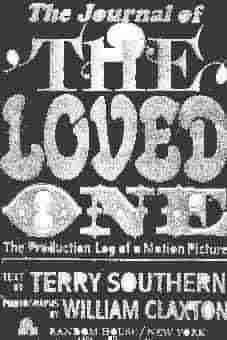
Paul Williams was a "construction brat" born in Nebraska who was on the road with his family since he was an infant, constantly moving all around the Midwest as well as South Dakota, Wyoming, and Ohio. When he was thirteen, his father was killed in a car wreck and Paul was sent off to live with an aunt in California. After high school in 1958, he moved to Denver, where he was a parachutist for a while, before moving to Hollywood to pursue acting in films like 'The Loved One' with Rod Steiger and John Geilgud released 1965.
He was raised on the music of Crosby and Sinatra, making him the perfect choice to write the hilariously inept songs for Ishtar. But it was the beginnings of Rock & Roll that really fuelled his fire in the fifties, and when he heard the Beatles, his life was altered forever. "The Beatles made me crazy. 'Sgt Pepper' was a real turning point in my life."

His collaboration with Roger Nichols resulted in world-wide fame, thousands of recordings, and many Grammys, Golden Globes and other awards. It also led him back to the world of movies. He wrote the entire song score for Alan Parker's delightful debut film 'Bugsy Malone' starring a teen-age Jodie Foster. His score for 'Cinderella Liberty', containing the song 'Nice To Be Around' (click here for the lyrics of this song), was nominated for an Oscar as was his score for 'Muppet Movie' and the song 'Rainbow Connection' (click here for the lyrics of this song) which he wrote for that film.
He was the music supervisor for 'A Star Is Born', for which he collaborated with three different composers, including Barbra Streisand. Together, he and Streisand wrote 'Evergreen' (click here for the lyrics of this song), which justly won the Oscar for Best Song that year.
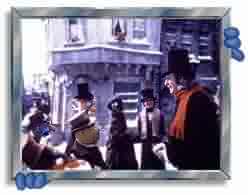
Current songwriting endeavours include "madly writing" many songs for a new Muppet movie version of 'The Christmas Carol' for Jim Henson productions. Originally slated to be a TV movie, the project has become so magical that the powers-that-be changed course, and have scheduled it for a theatrical release around Christmas.
Although he has written so many standards known the world over, when asked what his favourite song is, he answers with one most people don't know, 'A Perfect Love' (click here for the lyrics of this song), which Gladys Knight, Ray Charles, and others have recorded. "The lyrics say a lot about my own life: 'Old enough to know I've been wrong and fool enough to think I still might change'"
THE QUESTIONS AND ANSWERS
Last Updated 26th September 1998
ST: How did you learn to write songs?


PW: I learned by doing it. I would write all day with Roger Nichols, and then at the end of the day, Roger would want to go home. And I had a tendency to not want to do that. So I'd stay up all night and write with anyone who wanted to write with me. And out of that came other collaborations.
ST: Did you and Roger develop a routine way of writing together?
PW: Nichols would write a melody that I'd like and then he'd lock me in the office and wouldn't let me out until I'd finished. Roger's like six-foot-five and he'd make me stay. So all my lyrics were written to existing melodies.
There were only two times when I wrote lyrics first and both those were with Craig Doerge. We wrote a hit for Bobby Sherman called 'Cry Like A Baby' and the other was 'Life Goes On' which was included on the Lena Horne album from her Broadway show, for which we won a Grammy. Craig, by the way, is a fabulous guy and a great player.
When writing words to a melody, I always thought the words were already in the music. The music is the key that opens certain emotional rooms in me. I hear the music and it touches certain places in me. And then I speak about how I feel about those places.
I'm taking baby-steps now returning to songwriting. And I'm trying to be motivated in that return by what put me there in the first place, and that was love. Real love for writing. Writing made me feel better than anything else. I've waited for that. It's something I've prayed about. I said I can't start songwriting because people think I'm a songwriter. Because Paul Williams had a lot of hits in the seventies and now it's the nineties. I had to be motivated by my own affection for what I'm doing or it never gets done. And happily that affection for songwriting is coming back. At its own time and its own speed.

You know what? I find that small garages tend to spawn good songwriters. You drive down the street and you know that behind every third small garage door there's a home studio and somebody's doing brilliant work.
Rap is the street poetry of the nineties and I can't talk to you about it and I'm not a street person. My gutter was a five-acre estate in Montecito when I hit the bottom. What I can participate in is what I feel, and what touches me. And a lot of those emotions, the more sweeping, passionate sentiments, want to express themselves in melody. There's an angular sound to certain words and certain emotions.
ST: One of my favourite songs that you and Nichols wrote together is 'Traveling Boy', which Art Garfunkel recorded. Do you recall writing it?
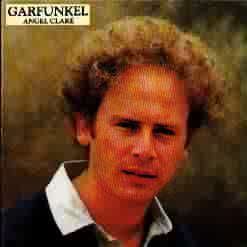
PW: 'Traveling Boy' (click here for the lyrics of this song) was written in the embryo. We wrote it and it laid around for a long time before anyone did it. Art Garfunkel recorded it beautifully on the 'Angel Clare' album. I usually closed my show with it when I performed it. I ripped off [Garfunkel's] arrangement and used it myself.
ST: The two of you wrote many hits for The Carpenters. Were those songs written specifically for them?
PW: The Carpenters were good for me. The songs that they did were not written with them in mind.
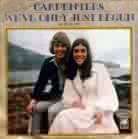
'We've Only Just Begun' (click here for the lyrics of this song) had all the romantic beginnings of a bank commercial. Roger Nichols and I were asked to write a song for a Crocker Bank commercial. It was something that really hadn't been done yet, to use a song instead of copy for a commercial. Roger wrote the music, and since it was a commercial about a young couple starting out, I wrote 'We've only just begun/white lace and promises, a kiss for luck and we're on our way' -- that takes us through the wedding and then driving off into the sunset -- 'before the rising sun we ride...'. We wrote the bridge after the fact and just strung together what we had as a song just in case anyone wanted to record it. It never occurred to us that anyone would. I mean, 'In A Gadda Da Vida', was the big song at the time, so to come along with something so schmaltzy as 'We've Only Just Begun' and to have it take off like it did.... Mark Lindsay recorded it first and his record was on its way up the chart when The Carpenters, who had also heard me sing it on the commercial and had asked if there was a whole song, recorded it. They released their single and it just raced up to number one.
Some songs take months and others take minutes. 'An Old Fashioned Love Song' (click here for the lyrics of this song) was a twenty minute song. and 'Rainy Days And Mondays' (click here for the lyrics of this song) took months to write. I knew that 'rainy days and Mondays get me down' but I didn't know why or what I was going to do with it.
I think the interesting thing about the song is that it sold more than three million copies of the sheet music. Which means people were buying it and learning it. To me that was a sign of something going back into the family structure; learning the song and playing it at home.
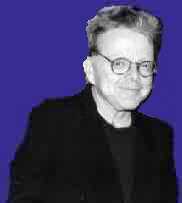
It was very Norman Rockwell for someone who was as Mad magazine in their personal life as I was. Because just as my success was ascending, my lifestyle was getting more and more like Dante's inferno. I never looked like the type of guy who wrote those songs. I wore round black glasses and had shoulder-length hair, a top hat with a feather in it, tie-dyed pants and took a lot of psychedelics.
I remember Bing Crosby driving off the lot at A&M, pointing at me and talking to his driver with great disgust. And I thought it was interesting because I was probably the only guy on the lot who wrote the kinds of songs he would sing. So I felt very rejected. I think I went out and drank.
I am a very romantic person but I had a very dark side. I think I had a spiritual awakening. It's the reason I can sit at this table and talk about this stuff. I can't talk about songwriting but I can talk about my life. If you want to talk about the fact that my life has been saved. What you write is up to you, but I give you absolute permission to quote me on all this stuff. I think there was a reason for everything that happened to me. I thing our greatest lessons come from the depths of our life experiences. And I learned a lot down there. As I said, my bottom was on a five-acre estate in Montecito, but it was an emotional and spiritual and physical bottom that I guess I needed to heal.
ST: Do you think that the drugs made it easier for you to write songs at first, or did they get in the way?
PW: Drugs didn't make it easier to write. They made it easier to stay up. It's funny. I think that songwriting, in a way, was a drug to me too. Because writing about emotions instead of sitting there feeling them, I became an objective observer to my own feelings. It got me out of my own experience and put me in the role of narrator to what was going on inside me. It was a way of protecting myself.
God knows how many more songs I would have written if I would have gotten sober and stayed that way. But I'll never know. It was part of how I lived, and it almost killed me.
ST: Did the drugs make you unrealistic about what you could accomplish in your songwriting?
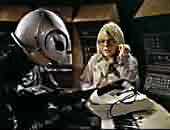
PW: Yes. What I chose to do was give myself impossible challenges. I'd give myself a month to write a whole song score, like the score for 'Bugsy Malone' and 'The Phantom Of The Paradise'. It was always a terror: Am I going to get it done? Now I don't have to do that anymore. What I have to do now is be realistic with my allotment of time. I don't tell someone I can do something in a week if it's going to take a month to do it. That's the difference.
When I first got sober, I had trouble writing. I would look at the piano and it looked like it was growling at me. When I first got sober, I literally didn't think I'd ever write again. The first thing I wrote was with my daughter's second grade class. A song called 'Paddington Bear'. We just did it. Wrote a kids song on the spot.
People asked me what happened to Paul Williams, and I've got to deal with that, because I went home for ten years and alphabetised my canned goods. Turns out I'd been taken hostage. By myself. It was funny, I was watching a real hostage on TV saying how he'd been gone for five years, and hadn't seen a newspaper or heard a newspaper or heard a radio. That's what getting sober was like for me. I've been gone for a while.
ST: Since getting off drugs, how has your process of writing songs changed?
PW: Before I got sober I would sometimes get so caught up in the frenzy of re-writing that I wouldn't know I had finished. Working alone sometimes it's hard to know when a song is finished. For me it's finished when it's too late to change it. Now it seems that some of the frenzy is out of it for me. I feel that we've finished a song here, we haven't found a cure for AIDS here. I don't think that frenzy, that turmoil, is necessary. I can't live like that anymore. If there's a place for what I do, the way I do it now, that's great. If not, then I've left a pretty good catalogue and there's other stuff I can do.
So much of songwriting is on a subconscious level anyway. Where what you're writing just comes out of you. And it's totally different from what you've been concentrating on consciously. It comes from a totally different place. And I think that if I can trust that work is being done on the subconscious level, then it kind of flows out.
I used to use drugs (to get to that place), now I have patience. Have a little patience, give a little time, it will come. You don't have to write down every single line. If you just sit quietly or go about your business, the right line will come. I write just what I need.
ST: I'm a big fan of your songs for the film 'Bugsy Malone'. How did that project originate?
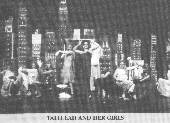
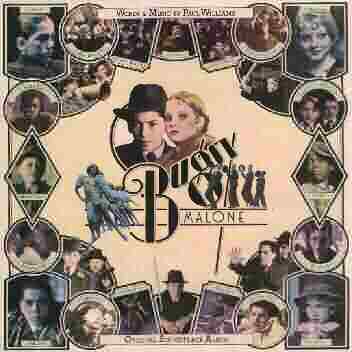
PW: It was Alan Parker's first film. He came from London with these amazing drawings of what he wanted to do. I thought he was crazy. But I loved the idea. Because there were kids dressed as adults driving cars with pedals. It seemed to me I could take that twist and use it in the songs. It was creating a non-specific period music. It wasn't really thirties or forties. Jodie Foster played Tallulah in that and she was wonderful.
SW: Your collaboration with Ivan Lins, the great Brazilian composer, on the song 'Love Dance' was exquisite. I was surprised it wasn't a bigger hit in the states. How did that project come about?
PW: Quincy Jones called me and said he had a great melody and he wanted to do it with George Benson. He sent me the music. I was in New York at the time floating around on a lake listening to this beautiful melody, and came up with the lyrics, and decided to call it 'Love Dance'. 'Turn up the quiet, love wants to dance' was the first line I got. It's a great piece of music, I really love it. Took me a couple of days to write it.
ST: Another great one-time collaboration that you were involved with was writing 'Evergreen' with Barbra Streisand. Was that a melody she wrote prior to you writing the lyrics?
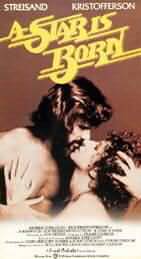
PW: Yes. She had the melody down and played it for me on guitar. She was really shy when she played it to me, really charming. I've re-examined my relationship over the year and realised she's gotten a lot of bad press, that she's difficult to work with and all that she didn't deserve, and I think I contributed to that. And told her so. She's a terrific lady.
That melody was full grown and completed when I got it. I didn't change a note. I think I would have been picked up by the hair if I had.
As I started working on the lyrics she got really excited, as if she had never heard a song before. It was really charming. Her performance in that movie ('A Star Is Born') of
'With One More Look At You' which I wrote with Kenny Ascher, at the end of the film, was really brilliant. That was a tough one. She was under a lot of pressure and so were we.
When I heard her melody for 'Evergreen' (click here for the lyrics of this song) I knew we had our love ballad. That's the classic ballad. Now all I had to do was write words for it. No wonder I did drugs when you set yourself up like that. It was a classic melody. I'd like to see her write some more. She writes with two instruments, the guitar or keyboard, and this amazing voice and this head that thinks melody options against cords that I don't know where they come from, but they're beautiful.
ST: What was it like to write those intentionally bad songs for Ishtar?
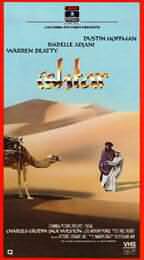
PW: I became possessed with my absolute belief that Chuck and Lyle were two real guys, the characters that Dustin Hoffman and Warren Beatty played. I worked months on that project. Oddly enough, a lot of underground bands are starting to do those songs. So maybe Chuck and Lyle will have their day yet.
I enjoyed that. It was like therapy, finding out who those guys were. And I crawled into their heads. It was a safe place to go, because I was busy loosing myself, and I wasn't comfortable in my own head, so I climbed into Chuck and Lyle's.
I wrote like fifty songs for this. Everyone had to like the songs: Dustin, Warren, Elaine [May, the director] and I had to like them, and they had to be bad. No wonder they took a long time.
I was surprised the critics panned it to the extent they did. They were gunning for Warren. They didn't review the movie, they reviewed the budget. I thought it was pretty good.
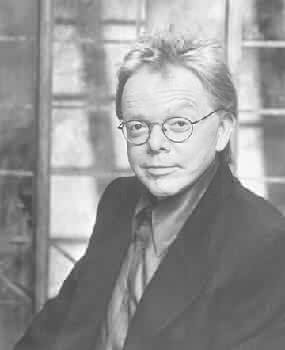 Everything I've done has brought me to where I am right now, and I'm the happiest and most serene I've been in my life. I'm capable of living my life now, instead of hurling myself at the days. Now I walk through life and I coexist. I don't have to skewer myself on a mission of songwriting. I can make songwriting a part of what I do. At least it appears that way.
Everything I've done has brought me to where I am right now, and I'm the happiest and most serene I've been in my life. I'm capable of living my life now, instead of hurling myself at the days. Now I walk through life and I coexist. I don't have to skewer myself on a mission of songwriting. I can make songwriting a part of what I do. At least it appears that way.
There was a time in my life when I first got sober, I didn't know if I'd ever be able to write again.
Not just my songwriting, but my entire life was caught up in drug and alcohol use. But I know now that my ability to communicate came from God. So I'm writing a little slower now, but at least I'm writing.
(Thanks to Claire Carpentier for providing me with the above
information.)
 Return to Paul Williams Music and Acting Home Page
Return to Paul Williams Music and Acting Home Page
Email me, David Chamberlayne, at:
Davidswebpages@paulwilliams.co.uk
Background image by 

















 Everything I've done has brought me to where I am right now, and I'm the happiest and most serene I've been in my life. I'm capable of living my life now, instead of hurling myself at the days. Now I walk through life and I coexist. I don't have to skewer myself on a mission of songwriting. I can make songwriting a part of what I do. At least it appears that way.
Everything I've done has brought me to where I am right now, and I'm the happiest and most serene I've been in my life. I'm capable of living my life now, instead of hurling myself at the days. Now I walk through life and I coexist. I don't have to skewer myself on a mission of songwriting. I can make songwriting a part of what I do. At least it appears that way. Return to Paul Williams Music and Acting Home Page
Return to Paul Williams Music and Acting Home Page